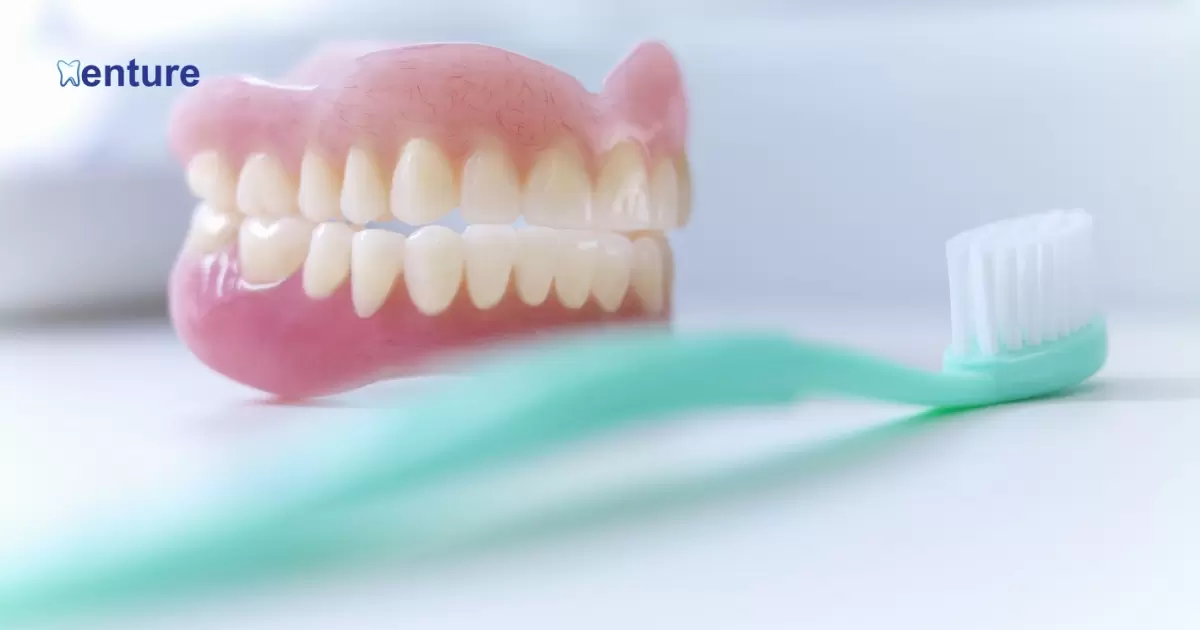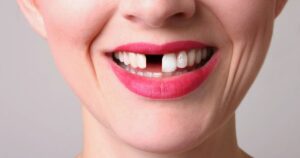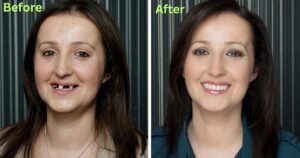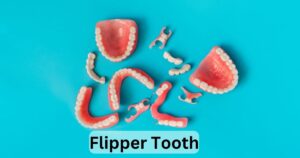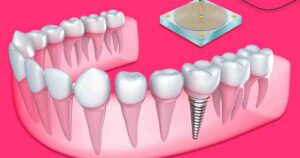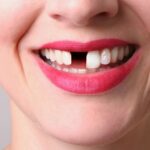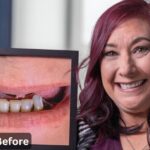Dentures are complete sets of artificial teeth that replace all-natural teeth, while partials replace only a few missing teeth. Dentures offer full-mouth restoration and are often considered better when most teeth are lost.
Deciding between full dentures and partials is a key dental choice. Full dentures replace all-natural teeth, while partials address fewer missing teeth. Your dentist’s advice plays a crucial role in making this decision, tailored to your unique dental situation. So, which option is better for you, full dentures or partials?
The decision between full dentures and partials depends on the extent of tooth loss. Full dentures replace all missing teeth and provide comprehensive restoration, while partials are designed for cases with only a few teeth missing.
Partial Dentures Are Dental Prosthetics
Partial dentures are dental prosthetics designed to replace a few missing teeth. They’re custom-made to fit comfortably in your mouth. These prosthetic teeth are typically attached to a metal or plastic base that matches your gum color. If you no longer need your partial dentures and are looking to sell used dentures, you can consider finding a suitable buyer. Partial dentures provide improved chewing ability and enhance your smile.
It’s important to note that partial dentures require proper care and maintenance. Regular cleaning and check-ups with your dentist are essential to ensuring their longevity and your oral health.
| Aspect | Full Dentures | Partial Dentures |
| Coverage | Replace all-natural teeth; complete mouth restoration | Replace only a few missing teeth; limited coverage |
| Dental Situation | Suitable when most or all teeth are missing | Suitable for cases with only a few missing teeth |
| Customization | Custom-made for a snug fit in your mouth | Custom-made for a snug fit in your mouth |
| Benefits | Offers complete restoration and is easier to clean | Enhances appearance, prevents shifting of natural teeth, improves chewing and speaking ability, budget-friendly, easy to clean |
| Care and Maintenance | Requires regular cleaning and maintenance | Requires regular cleaning and maintenance |
| Comfort | May feel more comfortable due to complete set | Can feel more natural due to blending with existing teeth |
Difference Between Dentures And Partial Dentures
Dentures, whether full or partial, serve as artificial tooth replacements. The primary difference is in their coverage. Full dentures replace all-natural teeth, offering complete restoration. Partial dentures, on the other hand, are tailored for cases with only a few missing teeth. Your dentist will guide you toward the right choice based on your individual dental needs.
Both types of dentures are custom-made to fit comfortably in your mouth. Full dentures replace an entire set of natural teeth, making them suitable when most or all teeth are missing.
How Partial Dentures Are Made?
Partial dentures are custom-made to fit your mouth perfectly. The process starts with your dentist taking precise measurements of your mouth and missing teeth. These measurements help create a mold.
The next step involves matching the artificial teeth to your natural ones in color and shape. Skilled technicians carefully place the teeth into the framework. Your dentist will then adjust and refine the partial denture for a snug fit.
Benefits Of Partial Denture
- Partial dentures fill gaps left by missing teeth, improving your overall appearance and confidence.
- By occupying the empty spaces, partial dentures help keep your remaining natural teeth in their proper positions, preventing them from shifting or tilting, which can lead to dental issues.
- Partial dentures enhance your ability to speak clearly and chew effectively, making it easier to enjoy your favorite foods and communicate with confidence.
- Maintaining good oral hygiene is simple with removable partial dentures. You can clean them regularly to ensure a healthy mouth.
- Partial dentures are a more budget-friendly solution compared to alternatives like dental implants, making them accessible to a wide range of individuals.
- Your dentist ensures that partial dentures are tailor-made to fit your mouth, providing a comfortable and secure fit that looks and feels natural.
How Partial Dentures Are Used?
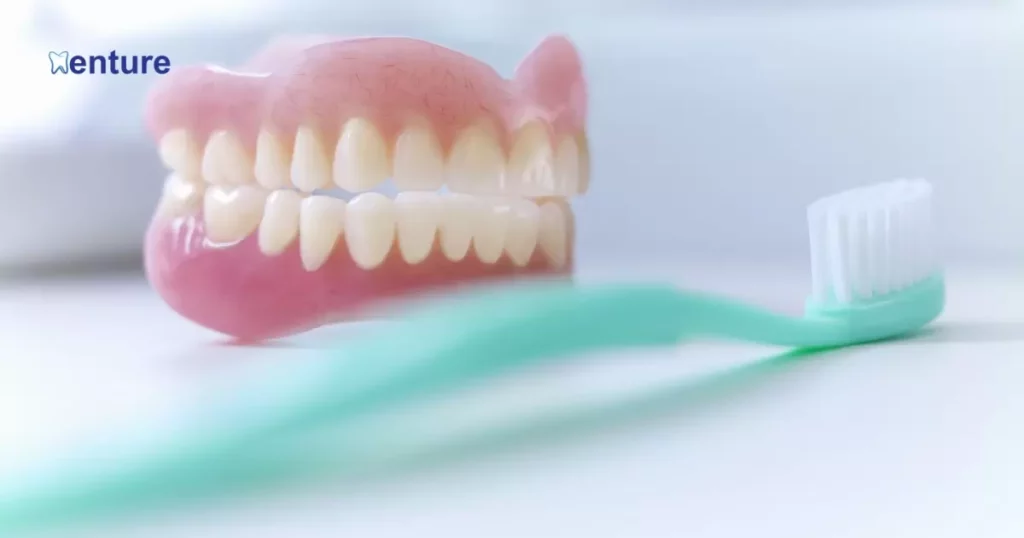
Partial dentures are employed when some, but not all, natural teeth are missing. These custom-made dental appliances consist of replacement teeth attached to a supporting framework. They fill gaps where teeth are absent, restoring both function and appearance.
To use partial dentures effectively, consult your dentist for an accurate fit. The process involves taking impressions of your mouth to create a tailored device. Once fitted, these dentures seamlessly blend with your natural teeth, improving your ability to speak, eat, and maintain oral health.
Complete Tooth Replacement
Complete tooth replacement refers to the replacement of all the teeth in a person’s mouth. This procedure is typically required when an individual has lost all of their natural teeth, either due to decay, gum disease, injury, or other dental issues. There are several options for complete tooth replacement, including:
Full Dentures: Full dentures are removable appliances that replace all of the teeth in the upper and/or lower jaw. They are typically made of acrylic or a combination of materials and are custom-designed to fit the individual’s mouth. Full dentures can restore the appearance and function of missing teeth.
Implant-Supported Dentures: These dentures are similar to full dentures but are securely attached to dental implants that are surgically placed in the jawbone. This provides greater stability and prevents the dentures from slipping or moving while speaking or eating.
All-on-4 or All-on-6: These are specialized implant-supported dentures that use only four or six strategically placed implants to support a full arch of teeth. This technique can reduce the need for extensive implant surgery and expedite the process of complete tooth replacement.
Full-Arch Dental Implants: Some individuals opt for a full-arch restoration using dental implants. In this procedure, a fixed dental bridge or a hybrid denture is attached to multiple dental implants, providing a permanent and natural-looking solution for complete tooth replacement.
Fixed Dental Bridges: In some cases, a traditional fixed dental bridge may be used to replace all the teeth. This involves placing dental crowns on natural teeth (if they are still present) or dental implants to support the bridge.
The choice of treatment depends on factors like the patient’s oral health, budget, and personal preferences.
Simplicity In Care And Maintenance
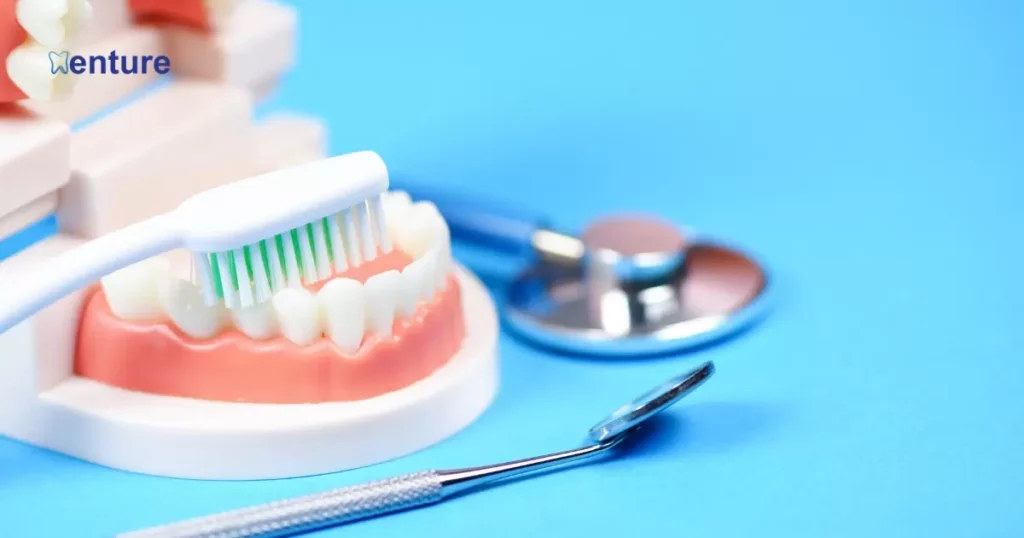
When it comes to how partial dentures are used, it’s all about filling the gaps in your smile. These custom-crafted dental appliances replace missing teeth, allowing you to chew, speak, and smile with confidence. They securely attach to your natural teeth and can be easily removed for cleaning, making daily care and maintenance simple.
To ensure your partial dentures stay in good shape, follow a straightforward cleaning routine. Regularly remove and clean them with a soft brush and mild soap or denture cleaner. Avoid abrasive materials to prevent damage.
Potential Cost Savings
Potential cost savings are often a significant consideration when choosing between full dentures and partials. Full dentures, covering the entire mouth, can be more costly upfront due to the need for a complete set.
Simplicity in care and maintenance is a key factor. Full dentures and partials require regular cleaning and care to maintain oral health. Both options involve removing the appliance for cleaning, but full dentures might be somewhat easier to manage since there are no natural teeth involved.
Are Full Dentures More Comfortable Than Partial
When it comes to comfort, full dentures and partials offer unique benefits. Full dentures may feel more comfortable as they replace all missing teeth, providing a complete set that can function well together.
In terms of care and maintenance, full dentures and partials have their advantages. Full dentures, being a complete set, are easier to clean and maintain as they don’t involve managing natural teeth.
Frequently Asked Question
Do partials feel more natural than full dentures?
Answer: Partials can feel more natural for some people as they blend with existing teeth, offering a comfortable fit.
Are full dentures easier to maintain?
Answer: Full dentures may be simpler to clean and maintain since they involve a complete set of artificial teeth.
Can I eat a wider variety of foods with full dentures?
Answer: Full dentures can allow you to enjoy a broader range of foods since they replace all missing teeth.
Conclusion
The choice between full dentures and partials hinges on your unique dental needs. Full dentures provide a comprehensive solution, replacing all missing teeth, which can offer comfort and simplicity in maintenance. Partials are more tailored to those with a limited number of teeth missing, ensuring a natural feel and appearance.
When deciding between these dental options, it’s crucial to weigh the factors of comfort and ease of care. Full Dentures Better Than Partials Both full dentures and partials have their merits, and the comfort level may vary from person to person.
